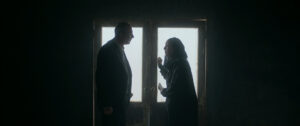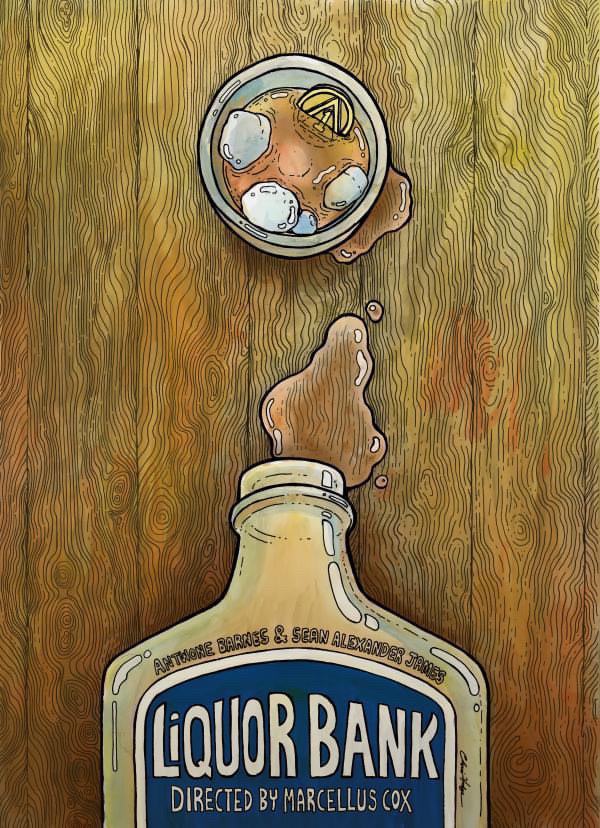
Oscar Qualifying Short Film Review “Our Males And Females”
WATCH THE TRAILER HERE
First, the Recap:
What we do in the name of religion. Now, this is not to say that following the practices, teachings, and rites associated with your given choice of faith is a BAD thing, but rather to simply note that history is replete with so many atrocities, large and small and in many manifestations, that have been carried out through the veil of faith as the reasoning to take the actions in question. When choosing to be, perhaps, a little TOO dogmatic in our approach to following faith, it opens up the potential for losses of perspective that can end up having an even more profound impact on us and what we believe. An Islamic father (Kamel El Basha) and mother (Shafeqa Al-Tal) face this challenge in the passing of their transgender daughter and therefore, by tradition, having to perform the rites of burial–washing and shrouding her. However, in severe conflict of what their cornerstone beliefs hold to, plus their own differing individual standpoints about it, HOW do they move forward with putting their “son” to rest?
Next, my Mind:
The sometimes overwhelming burden of shame and guilt collides with the concepts of intolerance, longstanding customs via traditional religious rites, and, quite candidly, the loss of basic humanity through this incredibly challenging, thought-provoking, rawly unflinching Oscar qualifying short film which presents an intense portrait of what we are capable of doing when confronting circumstantial extremes while being embattled by what we stand for by faith. It is completely indisputable, for this critic anyway, that writer/director/producer Ahmad Alyaseer, writer Rana Alyaseer, producer Mais Salman, and co-producer Faris Halaseh had every intention to bring a reality to the screen that SHOULD honestly call into question how we view our beliefs, whether steeped in historical/cultural rigidity or not, when it comes to how we choose to take on responsibility for one we’ve loved, in this case a child, regardless of what life choices were made and any subsequent issue we might have had with it.
This necessary separation of foundational religious viewpoints vs. simply SEEING another as a fellow human being, much less as a parent towards their son or daughter, gets seriously displayed in a whole new way through a narrative that takes its LGBTQIA-based theme and turns it on its head, placing it in the context of a mother and father who are required to perform burial rites their faith demands, but are at complete odds due to the nature of their deceased transgender daughter’s orientation and how that is seen in the eyes of their Islamic doctrine. From this point of contention between them, we then see the film begin to explore the aforementioned dichotomy with unabashed boldness and honesty, becoming a tale, as also hinted at above, about the measures we would sink to in order to try and maintain face or avoid total humiliation, even if it comes at the cost of our own personal convictions or another’s.
We so deeply wish to DO the right thing, whether in obedience to what we hold as faith, or just for the sheer sake of who we are, ideally, as well-meaning, moral, kind-hearted, loving people, and this is also so acutely addressed here in the interpersonal conflict we witness between these two parents and the opposing actions they’re taking–one openly defying their views and the other stalwartly (or, frankly, stubbornly) grasping onto theirs. On another underlying tangent, it conveys the unwavering and unconditional acceptance of a mother towards her child vs. the overtly, adamantly uncompromising position of a father who WANTS to perform what’s needed, but still cannot see past the obvious indicators of his “son’s” lifestyle choice. The non-acceptance of others who become briefly involved (or is it almost entangled!) is displayed quite emphatically as well, which brings on the explorations of familial banishment, dishonor, and the lasting stigma the child’s decision represents to the community at large.
As events unfold to higher magnitudes of volatility, a final action is executed that puts the decisive exclamation point on the narrative, ushering forth the heartbreaking endgame the finale delivers to us, one that resonates beyond the end credits and really does effectively call into contemplation the necessary messages it all should elicit within our hearts and minds, no matter what faith you may or may not claim. El Basha is all smoldering energy being barely being contained until it comes flooding out in an ultimately jarring manner though his highly emotive performance as the father, a man experiencing an internal cacophony of anger, anxiety, resentment, uncertainty, and dogged resistance to betray any aspect of the faith he firmly holds to when it comes to being the one to do burial rites on his now-passed transgender “son”, really now his daughter.
Wishing to avoid the disrepute the family will fall into if their community at large were to discover their child’s choice, will a father choose to take drastic action in order to stay within his religion’s parameters, and at what cost will it come? El Basha so fervently expresses all these emotional valleys his character is undergoing, doing so with total believability and deeply felt resolve that is a credit to the actor’s skills. In a similar way, Al-Tal brings a different degree but no less fiery and passionate vigor to her role as the mother, whom from the very start and throughout the uncomfortable situation the couple are in, stands absolutely solid in wishing to have them perform the necessary rites no matter what hesitations her husband is sticking to. She sees only their beloved child, praying with an equal level of ardor for her, even as she continues to battle her husband’s warnings not to be directly involved with what is coming to pass.
Also attempting to get others to assist, but then facing the shocked rejection of them seeing what the couple are wanting for what is being seen, even if by conjecture, an “aberration”, the reaction she has when her husband finally does take matters into his own hands is a gut-punch moment that so adeptly puts how she feels out there with affecting potency, and Al-Tal’s expressiveness in spoken, facial, and body language tell the tale with perfect finesse and poise. Supporting roles arrive through Moataz Allabadi and Sana Saleh as a male and female washer respectively the mother tries to convince to carry out the process they desire, much to their chagrin, agitation, and disgust. The other supporting turn comes from Tetiana Beras as the couple’s deceased daughter. So, in total, “Our Males and Females” is a definitively fearless and understandably provocative statement about religious hubris, prejudice, and lack of understanding vs. what it is to just BE human and SEE people for who they are, even when not agreeing with what choices are made. If we lose hold of treating each other, much less our own family, with due respect and love that transcends faith, what DO we really have left, and what does it say about who we are and what we’ve allowed ourselves, and this world, to become? Not anti-faith. Anti HATE.
STAR RATING (out of 5):
As always, this is all for your consideration and comment. Until next time, thank you for reading!





